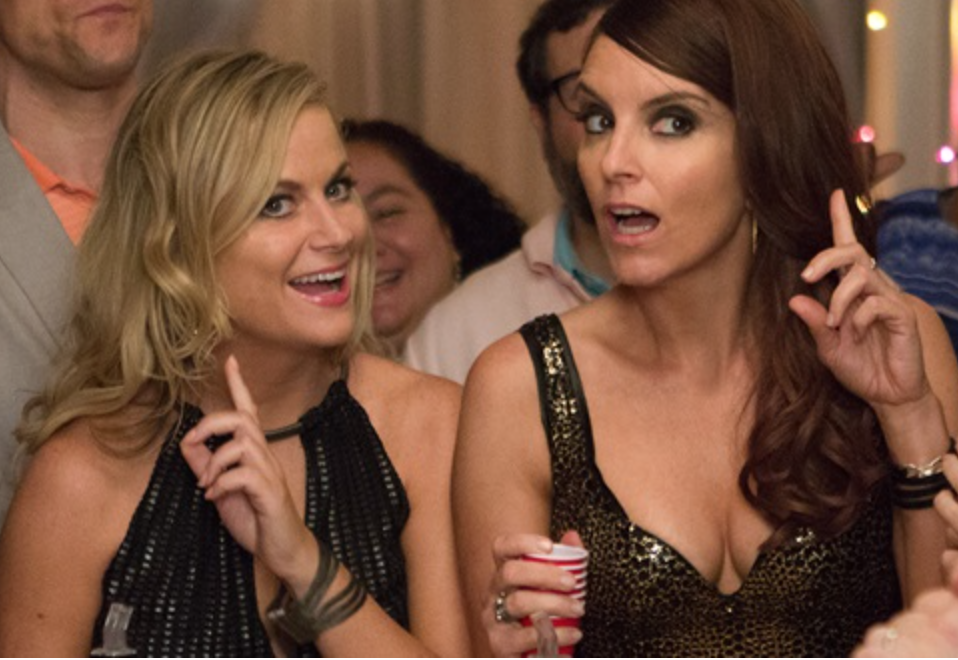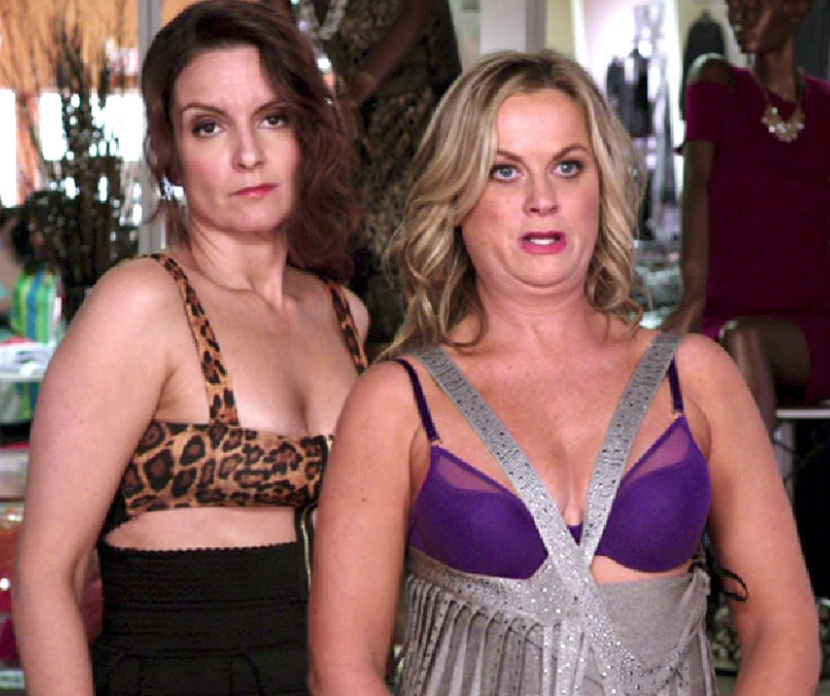 Call me the Grinch Who Stole “Sisters,” but the new comedy starring the dream team of Amy Poehler and Tina Fey is just plain crap. I know some of you will see it anyway, and I kind of hope you do. A mainstream American comedy starring two fortysomething women deserves box-office support, and Poehler and Fey are my absolute favorite forces in American comedy. But the truth is that it’d be more fun to watch them clip their toenails for two hours than mug their way through this formulaic, retrogressive soap dish.
Call me the Grinch Who Stole “Sisters,” but the new comedy starring the dream team of Amy Poehler and Tina Fey is just plain crap. I know some of you will see it anyway, and I kind of hope you do. A mainstream American comedy starring two fortysomething women deserves box-office support, and Poehler and Fey are my absolute favorite forces in American comedy. But the truth is that it’d be more fun to watch them clip their toenails for two hours than mug their way through this formulaic, retrogressive soap dish.
Poehler plays Maura Ellis, a divorced nurse held hostage by her own do-gooder impulses. (Read: She’s a poor woman’s Leslie Knope.) Rather than climb back on ye olde dating train, she prefers to Skype with her retired parents (James Brolin and Dianne Wiest, cursing like a scurvy-addled sailor) and craft motivational cards. (Without the dark night, we’d never see the bright stars.) Fey is big sister Kate, an oft-fired aesthetician who is living on the couch of her former “bug man.” Decked out in hot pants, ratty hair extensions, and an un-ironic fedora, Fey is in serious anti-Liz Lemon mode, though those audible italics are still in full effect: “I’m not a hot-head. I’m brassy,” she says, and you gotta love it – at least a little bit.
 Without warning, Mom and Dad sell the family home, and separation anxiety seizes arrested-developmentals Kate and Maura when they’re charged with the task of clearing out their shared childhood bedroom. In retaliation, they decide to throw one more “Ellis Island” party before the new owners move in, and wild-child Kate agrees to be the “party mom” so Maura can let her freak flag fly for once. Ike Barinholtz plays Maura’s love interest in a straight man role that squanders the slapstick silliness he channels on “The Mindy Project”; Maya Rudolph and her magnificently rubbery features play the sisters’ suburban hausfrau nemesis; John Leguizamo is the aging Lothario who proudly refers to himself as a “known alcoholic in these waters”; and a facially tattooed John Cena shows up as a deliciously deadpan drug dealer.
Without warning, Mom and Dad sell the family home, and separation anxiety seizes arrested-developmentals Kate and Maura when they’re charged with the task of clearing out their shared childhood bedroom. In retaliation, they decide to throw one more “Ellis Island” party before the new owners move in, and wild-child Kate agrees to be the “party mom” so Maura can let her freak flag fly for once. Ike Barinholtz plays Maura’s love interest in a straight man role that squanders the slapstick silliness he channels on “The Mindy Project”; Maya Rudolph and her magnificently rubbery features play the sisters’ suburban hausfrau nemesis; John Leguizamo is the aging Lothario who proudly refers to himself as a “known alcoholic in these waters”; and a facially tattooed John Cena shows up as a deliciously deadpan drug dealer.
Plotwise, that’s the whole enchilada.
Though Paula Pell’s writing for “Saturday Night Live” was usually on-point, this bare-bones screenplay relies too heavily on the improvisation of its players, which is a weakness that’s been plaguing American film comedy ever since Hollywood became Judd Apatown. Granted, with their “Second City” and “Saturday Night Live” backgrounds and generally flabbergasting writing chops (both have penned out-of-sight memoirs), Poehler and Fey are two of the greatest ad-libbers this side of Jon Stewart. But not even they can transcend this dull muddle, nor can director Jason Moore, though he proved himself perfectly capable of delivering the female funny when working from the strong screenplay of “Pitch Perfect.”
Every scene is so overlit that it looks as if it were shot in a dentist’s office in which the Muzak is “Aughts Urban Top Forty,” and the morality play we’re ultimately delivered (also very Apatownie) doesn’t begin to compensate for such retrogressive bits as humorless lesbians and Korean manicurists whose broken English is apparently fair game. Worse is the terrible pacing that comes from piecing together the methinks-she-doth-protest-too-much muggings (think scattershot montages and saggy boob jokes) in the absence of a legitimately tight script. You know you’re in trouble when the funniest part of a film takes place in the bloopers reel running over the final credits.
The real problem might be that mainstream movie comedy is a dying form. Television – especially programs spearheaded by Fey and Poehler themselves (“Unbreakable Kimmy Schmidt,” “Parks and Recreation,” “Broad City,” “Welcome to Sweden,” “30 Rock,” “Difficult People”) – increasingly subverts cultural stereotypes and traditional storytelling arcs to wonderful effect.  But the financial high stakes of big-studio ventures results in too many cooks in the kitchen – 1980s-style decision-makers who rely too heavily on sexist and racist tropes that should have been retired with the last millennium. (A friend calls this “OogaBoogaville Cinema”; consider last year’s “Blended” and you can see what he means.) Though Fey seems like she’s having a good time (she gets more comfortable in her skin with every year), Poehler looks genuinely pained, as if she recognizes the kind of tripe she’s serving up but can’t do anything to stop it. Ultimately, “Sisters” is like having a bad visit with people you love. It’s not going to change your affection for them but it’s still no fun.
But the financial high stakes of big-studio ventures results in too many cooks in the kitchen – 1980s-style decision-makers who rely too heavily on sexist and racist tropes that should have been retired with the last millennium. (A friend calls this “OogaBoogaville Cinema”; consider last year’s “Blended” and you can see what he means.) Though Fey seems like she’s having a good time (she gets more comfortable in her skin with every year), Poehler looks genuinely pained, as if she recognizes the kind of tripe she’s serving up but can’t do anything to stop it. Ultimately, “Sisters” is like having a bad visit with people you love. It’s not going to change your affection for them but it’s still no fun.
This was originally published in Word and Film.
